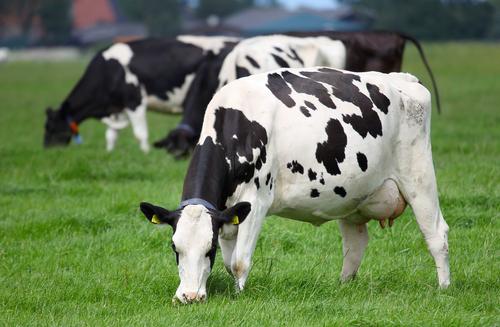http://cdn.nutrition.org/content/early/2017/02/08/cdn.117.000422
Dairy-derived foods —milk, cheeses, yogurt, etc. — are nutrient-rich dietary components. Fluid milk is a top provider of riboflavin, vitamin D, calcium and other minerals to the diets of adult Americans, according to the USDA. And yet, milk and other dairy foods are under constant attack from a variety of groups who persist in denigrating its value. For example animal rights groups who want everyone to become strictly vegan, busily attack virtually every positive attribute of dairy and other animal - derived foods. In addition, they use inconclusive research studies to supposedly bolster their stance. A prime example is a study that recently appeared in the journal Current Developments in Nutrition.
Dr. Susan E. McCann from the Roswell Park Cancer Institute in Buffalo, NY and colleagues analyzed data collected in the Roswell Park Cancer Institute (RPCI) Data Bank and BioRepository (DBBR) between 2003 and 2014. In all, they had data from about 1900 women who were diagnosed with breast cancer during that period, and compared their diets to those of about 1200 control women who didn't have breast cancer diagnoses.
Dietary intake data were derived from food frequency questionnaires that the women had completed. For this study they examined monthly intakes of total dairy, milk, yogurt, low-fat cheese, other cheese, and sweet dairy (e.g. sweetened puddings or other desserts).
Briefly, the investigators controlled for a variety of factors such as age, race, menopausal status, smoking history and family history of breast cancer. They found that overall dairy consumption was associated with a non-significant reduction in risk of breast cancer, and a higher intake of yogurt was associated with a significant 39 percent reduced risk. Results differed with respect to whether or not the women had estrogen receptor (ER) positive or negative tumors. For those with ER - cancers, there was a positive association with milk intake; but for women with ER + tumors, there was a decreased risk associated with consumption of sweet dairy products.
So, on the basis of these data, should women with, for example, family histories of breast cancer avoid or increase their consujmption of particular types of dairy products? It wouldn't be surprising to find such advice out there in the blogosphere. But, no, these data should be considered only suggestive at best, and useless at worst.
The dairy intakes were derived from questionnaires that basically ask how often (not how much) a person consumes particular foods or beverages. From that information an amount is calculated, but in no case is food intake actually measured. So the data are inferential at best. Just think about it — if you were asked how many times a week over the past year you consumed yogurt, or milk, or other foods, how accurate would your answer be? Further, the associations between ER + and ER - breast cancer and various dairy foods differed — and the authors themselves had not good explanation for this difference.
In sum, if this article is used to bolster any anti-dairy stance, you can be assured that there is not much substantive data involved.




